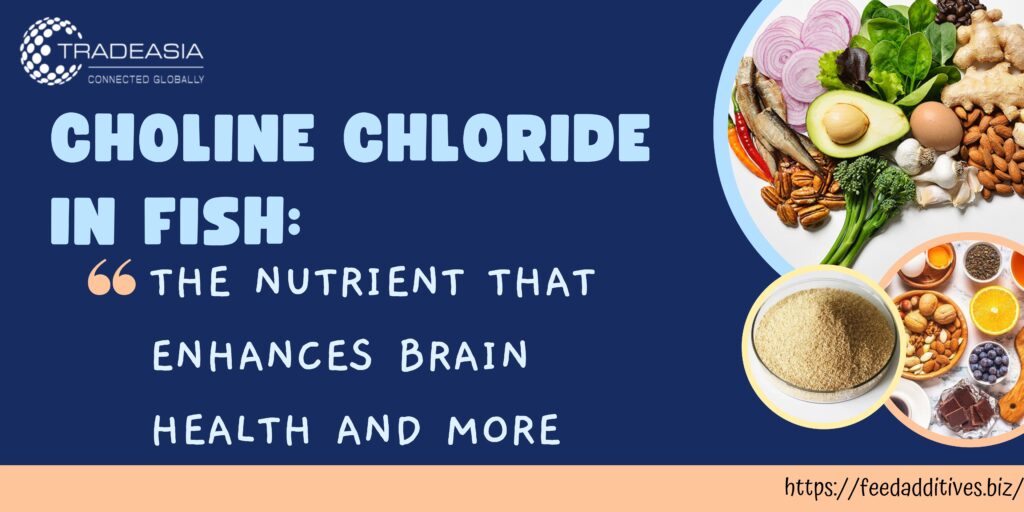
Fish is celebrated for its numerous health benefits, from being an excellent source of lean protein to providing essential omega-3 fatty acids. However, one often-overlooked nutrient in fish is choline chloride. Choline plays a pivotal role in human nutrition, and it’s particularly abundant in certain types of fish. In this article, we will explore the significance of choline chloride in fish for human nutrition, its health benefits, and the best fish sources to include in your diet.
Choline Chloride: An Essential Nutrient
Choline chloride, commonly known as choline, is an organic compound classified as a water-soluble B-vitamin-like nutrient. It is essential for various bodily functions, including brain health, liver function, and cell membrane integrity. Choline is especially vital during pregnancy for fetal brain development and is essential throughout life for maintaining overall health.
The Role of Choline in Brain Health
Choline is a precursor to acetylcholine, a neurotransmitter that plays a central role in cognitive function and memory. Adequate choline intake supports:
Cognitive Function: Choline contributes to maintaining optimal cognitive function throughout life. It is involved in memory formation, information processing, and concentration.
Brain Development: During pregnancy, choline is critical for fetal brain development. It helps prevent neural tube defects and supports the formation of essential brain structures.
Preventing Cognitive Decline: Some studies suggest that choline intake may be linked to a lower risk of age-related cognitive decline and neurodegenerative diseases such as Alzheimer’s.
Choline in Fish: A Nutritional Powerhouse
Certain types of fish are rich sources of choline chloride. Some of the best fish sources include:
Salmon: Salmon is not only prized for its omega-3 fatty acids but also for its high choline content. A 3-ounce serving of cooked salmon can provide approximately 70 milligrams of choline.
Cod: Cod is another fish that contains a notable amount of choline. A 3-ounce serving of cooked cod can provide around 50 milligrams of choline.
Tuna: Tuna, whether canned or fresh, is a good source of choline. A 3-ounce serving of canned tuna provides about 40 milligrams of choline.
Trout: Trout is rich in both omega-3 fatty acids and choline. A 3-ounce serving of cooked trout can offer approximately 60 milligrams of choline.
Incorporating Fish for Choline Intake
To reap the benefits of choline chloride from fish, it’s advisable to include a variety of fish in your diet. Baked, grilled, or broiled preparations are healthy cooking methods that preserve the nutrient content. It’s essential to balance fish consumption with other dietary sources of choline to meet daily requirements.
Conclusion
While fish is well-known for its omega-3 fatty acids, it’s also a valuable source of choline chloride, an essential nutrient with profound implications for brain health and overall well-being. By incorporating choline-rich fish like salmon, cod, and trout into your diet, you can enhance your cognitive function, support fetal brain development during pregnancy, and maintain a healthy mind throughout life. Fish isn’t just delicious; it’s a nutritional powerhouse that contributes to a healthy brain and body. Don’t hesitate to contact us if you need this product.
